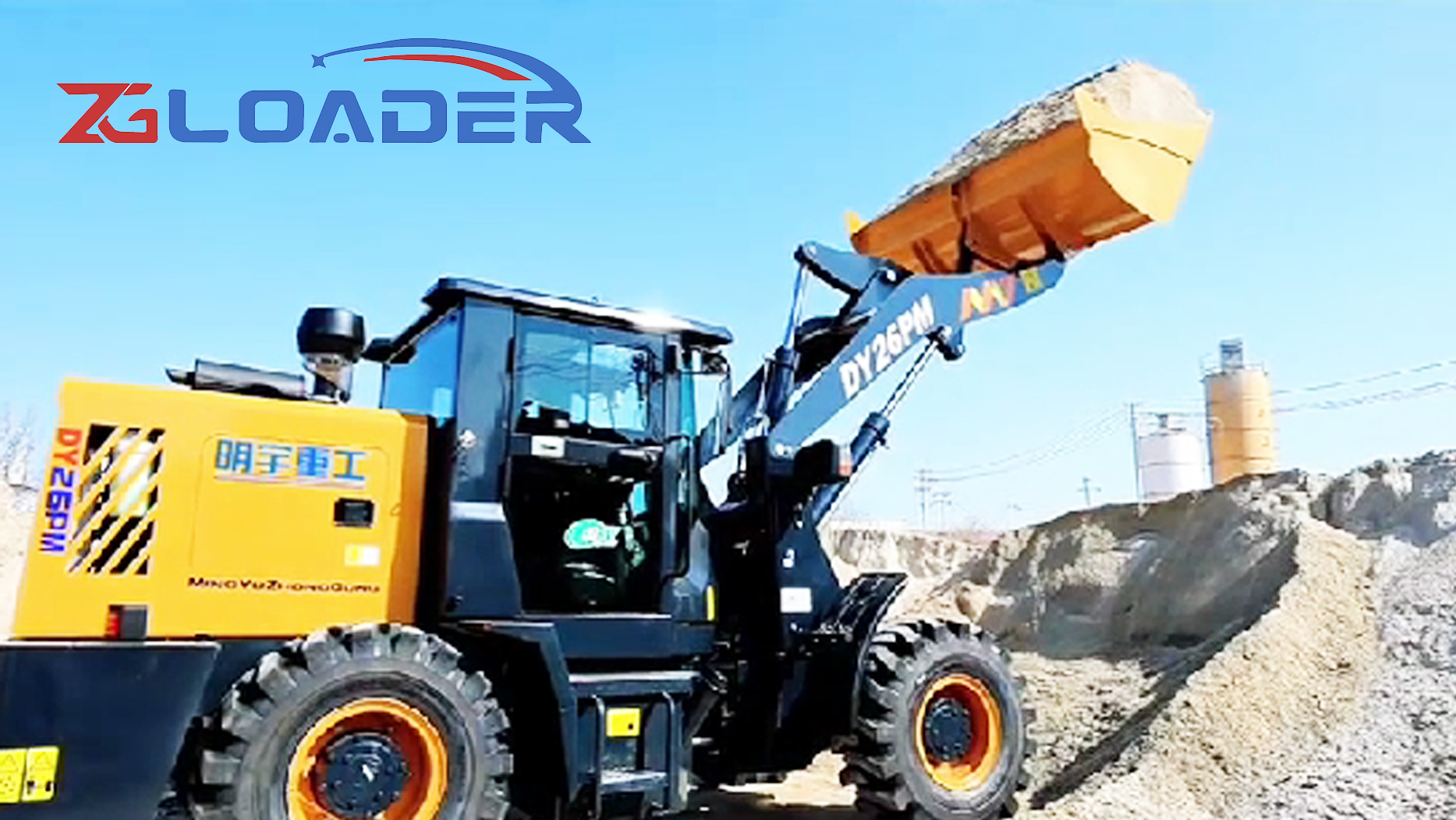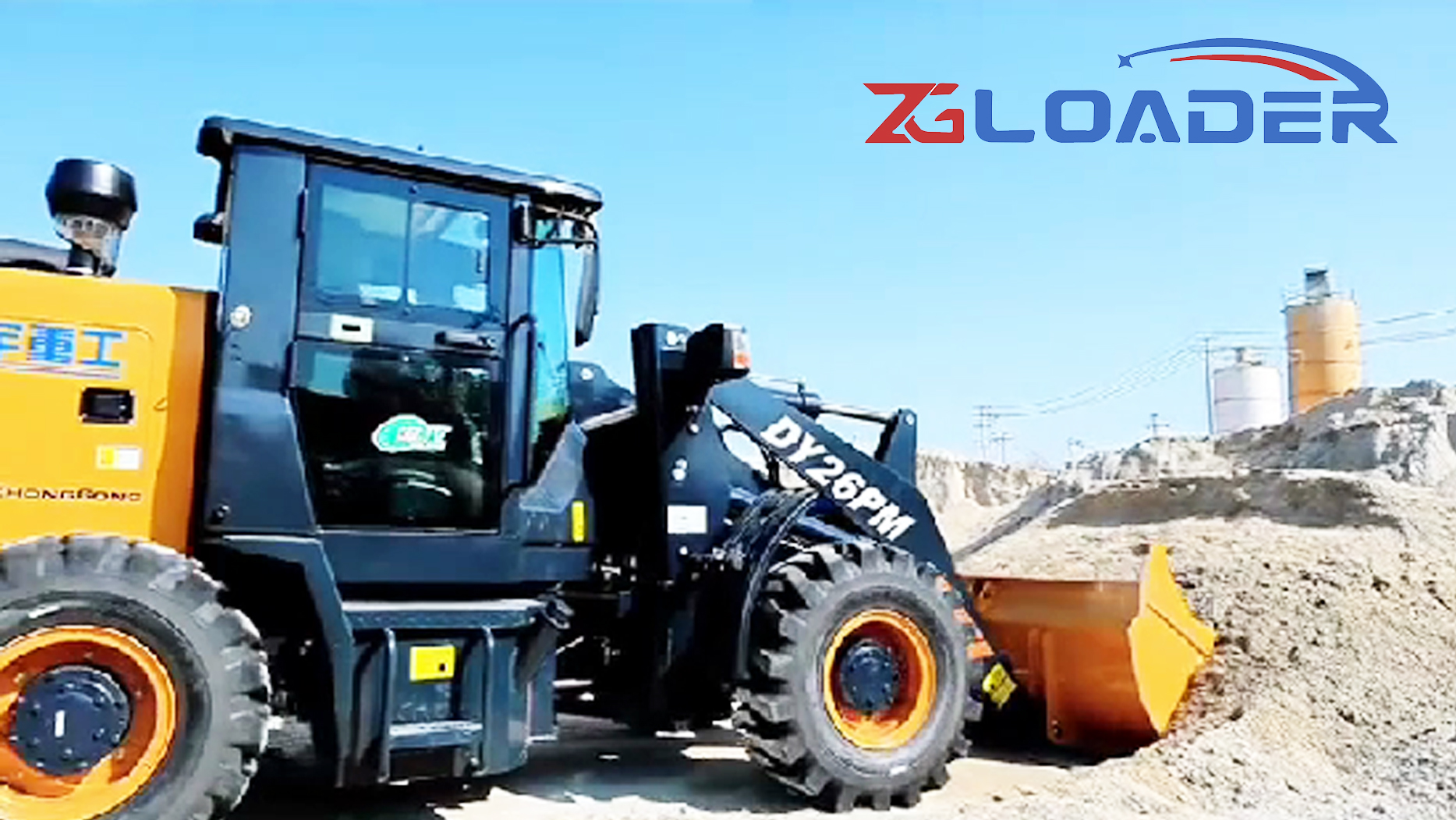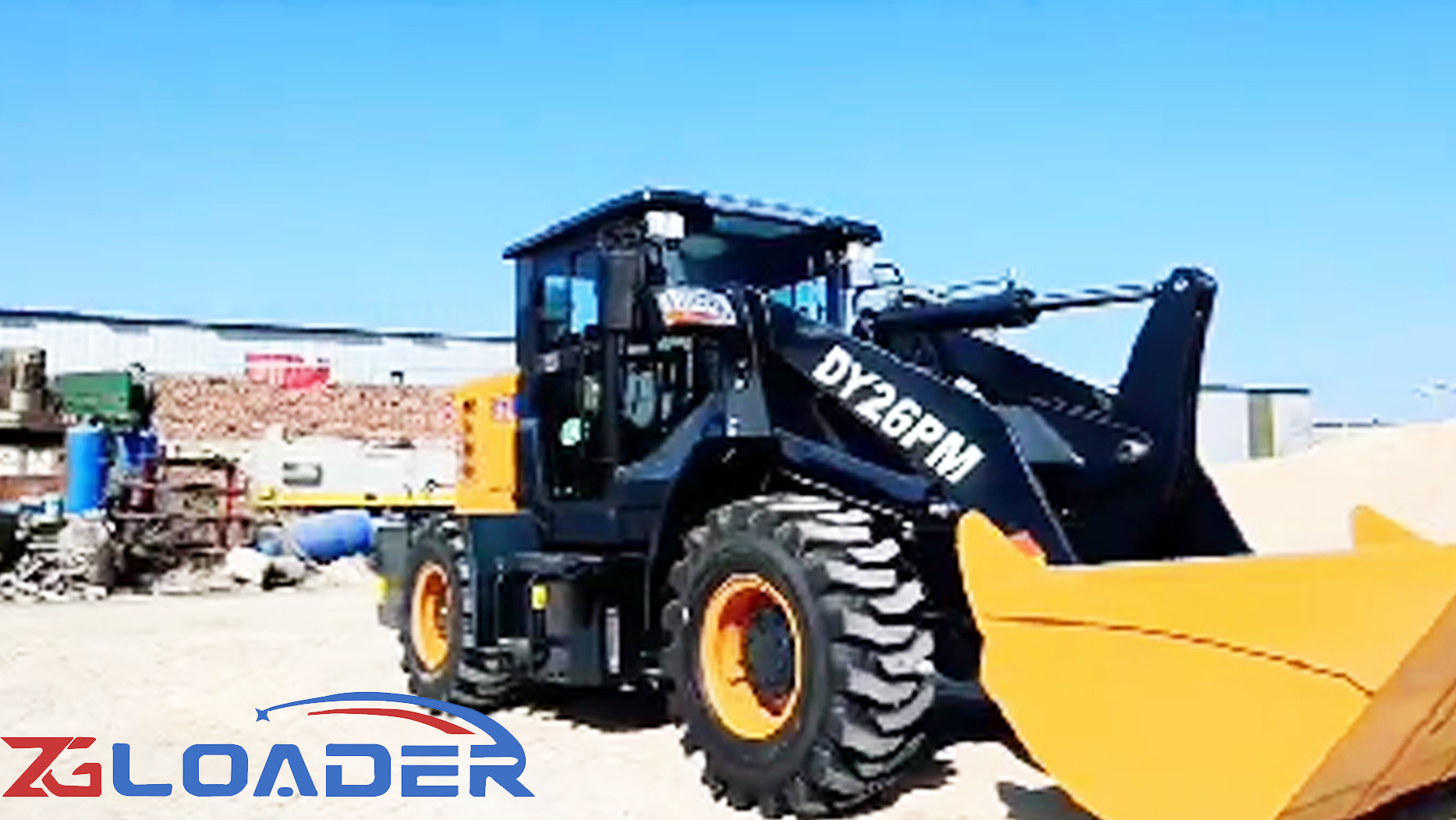Wheel loaders are the indispensable workhorses of construction sites, quarries, farms, and material handling operations worldwide. Their ability to efficiently scoop, lift, and transport bulk materials makes them central to productivity. However, to ensure these powerful machines deliver consistent performance, maintain their longevity, and operate safely, a diligent and comprehensive routine maintenance program is absolutely critical. Neglecting regular upkeep can lead to costly breakdowns, reduced efficiency, and significant safety risks.
Understanding the specific maintenance needs of a wheel loader is paramount for owners, operators, and maintenance managers. This isn't merely about fixing problems when they arise; it's about a proactive, preventative approach that extends the machine's useful life, optimizes fuel efficiency, and minimizes unscheduled downtime. Whether you own a compact mini wheel loader or a heavy-duty model from brands like MYZG or ZGLOADER, adhering to a robust maintenance schedule is non-negotiable.
The Cornerstones of Wheel Loader Maintenance
Routine maintenance for a wheel loader can be broadly categorized into daily operator checks, scheduled preventative maintenance (PM) at various intervals, and less frequent, more intensive inspections and overhauls.

1. Daily Pre-Operation Checks (Operator Responsibility)
These brief but vital checks are performed by the operator before each shift. They are designed to identify immediate safety concerns or potential issues that could lead to damage or an accident during operation.
Fluid Levels: Check engine oil, hydraulic fluid, coolant, and brake fluid. Top up as needed. A proper fluid level ensures systems operate efficiently and prevents overheating or component damage.
Fuel Level: Ensure sufficient diesel fuel for the shift. Most wheel loaders run on diesel, and running out can cause issues with fuel systems.
Tires: Inspect for proper inflation, wear, cuts, or damage. Underinflated or damaged tires significantly impact stability, fuel efficiency, and safety. Check lug nuts for tightness.
Bucket and Linkage: Look for cracks, bends, or excessive wear on the bucket, cutting edge, and pins. Ensure all pins are properly secured. Worn bucket components reduce efficiency and can be dangerous.
Hydraulic Hoses and Cylinders: Inspect for leaks, cracks, bulges, or visible damage. Hydraulic leaks are a common issue and can lead to fluid loss, reduced power, and environmental contamination.
Brakes: Test foot and parking brakes for proper function. Ensure they engage and disengage smoothly and effectively.
Lights, Horn, and Safety Devices: Confirm all lights (headlights, brake lights, warning lights), the horn, backup alarm, and safety features like seatbelts, mirrors, and fire extinguishers are working correctly.
Leaks: Visually scan under and around the machine for any signs of oil, fuel, or fluid leaks. Addressing minor leaks early can prevent major system failures.
Cab and Controls: Ensure the cab is clean, controls operate smoothly, and all gauges and warning lights are functional.
2. Routine Preventative Maintenance (PM) Schedules
These scheduled services are the backbone of a wheel loader's longevity and efficiency. Manufacturers provide specific hour-based or calendar-based intervals, and it's crucial to follow whichever comes first. Common intervals include:
A. Every 250 Operating Hours (or Monthly for lower usage):
This is typically a light service focused on vital fluid changes, lubrication, and basic inspections.
Engine Oil and Filter Change: Critical for engine health. Wheel loader diesel engines operate under heavy loads and generate heat, necessitating clean oil for lubrication and cooling.
Fuel Filter Replacement: Prevents contaminants from reaching the sophisticated fuel injection system, which can be very costly to repair.
Air Filter Inspection/Replacement: Essential for efficient combustion. In dusty environments common for wheel loaders, air filters can clog quickly and must be checked frequently.
Lubrication: Grease all accessible points according to the manufacturer's manual (e.g., pivot points on the loader arm, bucket pins, steering linkage, articulation points). Proper lubrication reduces friction and wear.
Cooling System Check: Inspect coolant level, hoses for cracks or leaks, and radiator/cooler fins for debris buildup. Clean external fins if necessary to prevent overheating.
Tire Inspection: Detailed check for wear patterns, proper inflation (re-inflate if needed), and any signs of damage. Tire condition heavily influences fuel consumption and stability.
Brake Inspection: Check for wear on pads/shoes and proper adjustment.
Hydraulic System Inspection: Check fluid level, inspect hoses, fittings, and cylinders for leaks or damage.
Electrical System Check: Inspect wiring, connections, and battery terminals for corrosion or damage. Ensure the battery is securely mounted.
 B. Every 500-600 Operating Hours (or Bi-Annually):
B. Every 500-600 Operating Hours (or Bi-Annually):
This service expands upon the 250-hour check with more in-depth inspections and component replacements.
All 250-hour service items.
Transmission Fluid and Filter Change: Essential for smooth operation and longevity of the transmission. The frequency depends on the transmission type and manufacturer's specific recommendations.
Differential Fluid Check/Change: Inspect and top up or change gear oil in the axles.
Hydraulic System Filter Replacement: Maintains hydraulic system cleanliness and efficiency, preventing contamination that can damage pumps and valves.
Drive Belt Inspection: Check tension and wear for belts driving the alternator, fan, water pump, etc. Replace if signs of cracking or excessive wear are present.
Steering System Inspection: Check tie rods, linkages, and steering cylinder for wear, looseness, or damage. Ensure the articulation joint is well lubricated and free of excessive play.
Exhaust System Inspection: Check for leaks, damage, and proper mounting. For modern wheel loader diesel engines, inspect the DPF (Diesel Particulate Filter) and SCR (Selective Catalytic Reduction) systems.
Air Conditioning System Check: If equipped, ensure proper function and refrigerant levels.
C. Every 1,000-1,200 Operating Hours (or Annually):
This is a comprehensive major service, often coinciding with annual safety inspections and more intensive component checks.
All previous service items.
Hydraulic System Fluid Change: Full hydraulic fluid replacement along with filter changes. This ensures peak hydraulic performance and prevents component wear from degraded fluid.
Cooling System Flush and Fill: Replace coolant and inspect the entire system, including the radiator and water pump.
Brake System Overhaul: More thorough inspection of master cylinder, wheel cylinders/calipers, brake lines, and adjustment/replacement as needed.
Axle Oil Change: Replace oil in both front and rear axles.
Engine Valve Adjustment: (If applicable to the specific wheel loader diesel engine model).
Fuel Injector Inspection: Check for proper spray pattern and operation.
Electrical System Components: Inspect alternator, starter motor, and all electrical connections for wear or damage.
Structural Inspection: Detailed visual inspection of the frame, loader arms, and chassis for cracks, fatigue, or stress.
Load Testing: For larger wheel loaders, load testing may be performed to verify lifting capacity and stability.
 Why Proactive Maintenance is Non-Negotiable
Why Proactive Maintenance is Non-Negotiable
Implementing a robust preventative maintenance program for your wheel loader fleet offers immense benefits:
Maximized Uptime: Regular servicing identifies and addresses minor issues before they escalate into major, costly breakdowns, ensuring your machine is operational when you need it most.
Extended Lifespan: Proper maintenance significantly prolongs the useful life of the wheel loader, maximizing your initial investment. This also makes the machine more attractive if it is later listed as a wheel loader for sale.
Enhanced Safety: Worn components, faulty brakes, or compromised hydraulics are major safety hazards. PM ensures all critical safety systems are in top working order, protecting operators and others on the job site.
Optimized Fuel Efficiency: A well-maintained engine with clean filters, proper fluid levels, and correctly tuned components runs more efficiently, directly reducing diesel fuel consumption.
Reduced Operating Costs: While maintenance has an upfront cost, it's typically far less than the expense of emergency repairs, lost productivity due to downtime, and potential damage or injury.
Compliance with Regulations: Many jurisdictions require regular safety inspections for heavy equipment. A robust PM program helps ensure compliance and avoids potential fines.
In conclusion, a wheel loader is a powerful and indispensable asset for countless operations. However, its continued performance, safety, and longevity are entirely dependent on a diligent and comprehensive routine maintenance program. From daily pre-operation checks to rigorous scheduled services encompassing the engine, hydraulics, transmission, and safety systems, every aspect of maintenance contributes to the machine's efficiency. For owners of machines from leading brands, including MYZG and ZGLOADER, understanding and committing to this routine maintenance is the ultimate key to unlocking the full potential and ensuring the long-term profitability of their wheel loader fleet.
Post time:Jul.02.2025
